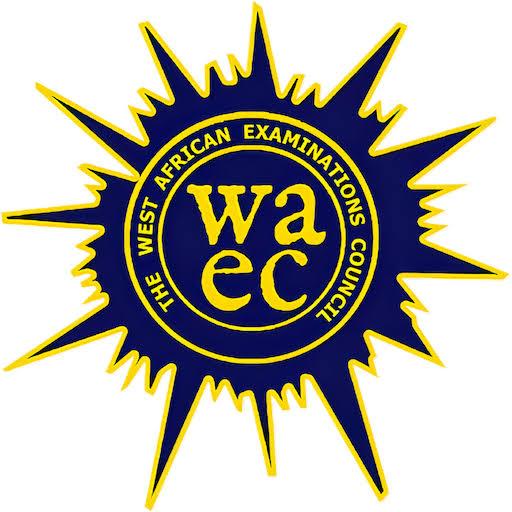Waec | Gce Literature In English Syllabus + Success Tips (2025/2026): Official Guide
Literature in English is one of the core art subjects for students sitting for WAEC and GCE exams. This subject tests your ability to analyze prose, drama, and poetry, as well as your knowledge of prescribed texts. Scoring high in Literature requires understanding the syllabus, reading set books, and practicing critical analysis. In this official guide, you’ll get the complete WAEC and GCE Literature syllabus, exam format, success tips, and answers to FAQs to help you pass easily.
WAEC | GCE Literature in English Syllabus (2025/2026)
WAEC and GCE Literature in English covers Drama, Prose, Poetry, and General Literary Principles. Below is the official syllabus breakdown.
1. Drama
| Topics | What to Study |
|---|---|
| Types of Drama | Tragedy, comedy, tragicomedy, melodrama |
| Dramatic Techniques | Dialogue, monologue, soliloquy, aside |
| Characters and Roles | Major, minor, round, flat characters |
| Plot Development | Exposition, rising action, climax, resolution |
| Themes and Messages | Themes in set plays |
2. Prose
| Topics | What to Study |
|---|---|
| Types of Prose | Novel, novella, short story, fiction, non-fiction |
| Narrative Techniques | First-person, third-person, omniscient, flashbacks |
| Characterization | Character types, roles, development |
| Themes and Motifs | Main ideas, recurring subjects |
| Plot Analysis | Study structure of novels and stories |
3. Poetry
| Topics | What to Study |
|---|---|
| Types of Poetry | Sonnet, ode, elegy, ballad, narrative poetry |
| Poetic Devices | Imagery, simile, metaphor, rhyme, alliteration |
| Rhythm and Sound | Rhyme schemes, meter, tone |
| Themes and Meanings | Main messages in set poems |
4. Literary Appreciation
| Focus Areas | What to Master |
|---|---|
| Figures of Speech | Simile, metaphor, personification, irony |
| Literary Terms | Theme, setting, plot, mood, tone, diction |
| Critical Appreciation | Interpretation and analysis of unseen passages |
Prescribed Texts (2025/2026 Session)
The exact list of books changes periodically. However, typical categories include:
| Section | Examples of Typical Texts |
|---|---|
| Drama | Othello by William Shakespeare, She Stoops to Conquer by Oliver Goldsmith, African plays like The Lion and the Jewel by Wole Soyinka |
| Prose | Things Fall Apart by Chinua Achebe, The African Child by Camara Laye |
| Poetry | WAEC-prescribed anthology of poems (African and non-African poets) |
(Please check the latest WAEC-prescribed texts from your school or official WAEC website for current list.)
WAEC | GCE Literature Exam Format
| Paper | Content | Duration |
|---|---|---|
| Paper 1 | Objective Questions (50 questions) | 1 Hour 45 Mins |
| Paper 2 | Drama and Prose Essays | 2 Hours |
| Paper 3 | Poetry Essays and Unseen Passage | 1 Hour 30 Mins |
Top Success Tips for WAEC | GCE Literature in English
| Tip | Why It’s Important |
|---|---|
| Read Set Texts Completely | Questions focus on the actual content of set books |
| Know Characters and Themes | Essays test deep knowledge of characters and themes |
| Learn Literary Terms | Paper 1 objective questions focus on definitions |
| Practice Essay Writing | Clear, organized essays fetch higher marks |
| Analyze Poems Closely | Poetry questions require deep interpretation |
| Master Quotable Lines | Quotations strengthen essay arguments |
| Study Past Questions | Understand WAEC’s question pattern |
| Use Class Notes and Guides | Teacher's analysis helps simplify complex texts |
| Avoid Cramming | Focus on understanding, not memorizing summaries |
| Revise Regularly | Consistent reading beats last-minute cramming |
FAQs About WAEC | GCE Literature in English Exam
1. How many papers are in WAEC Literature?
Three: Paper 1 (Objectives), Paper 2 (Drama & Prose), and Paper 3 (Poetry & Unseen).
2. Is reading set texts compulsory?
Yes. You must study the set texts for your exam session, as most essay questions are text-based.
3. Which section carries the highest marks?
Essay questions in Papers 2 and 3 carry more marks than objectives.
4. What is the best textbook for Literature?
Use WAEC Literature Past Questions Series, teacher’s notes, and any approved guides analyzing your set books.
5. How do I pass Literature essays?
Write structured answers using introduction, body, and conclusion. Quote from texts and explain themes, characters, and literary devices clearly.
Conclusion
WAEC and GCE Literature in English exams test not just your memory but your analytical and critical thinking skills. Focus on reading the actual texts, understanding literary devices, and practicing essay writing. Pay close attention to poetry interpretation and unseen passages too.
By studying consistently, analyzing characters and themes, and mastering your prescribed texts, you can confidently target an A1 in Literature in English.



